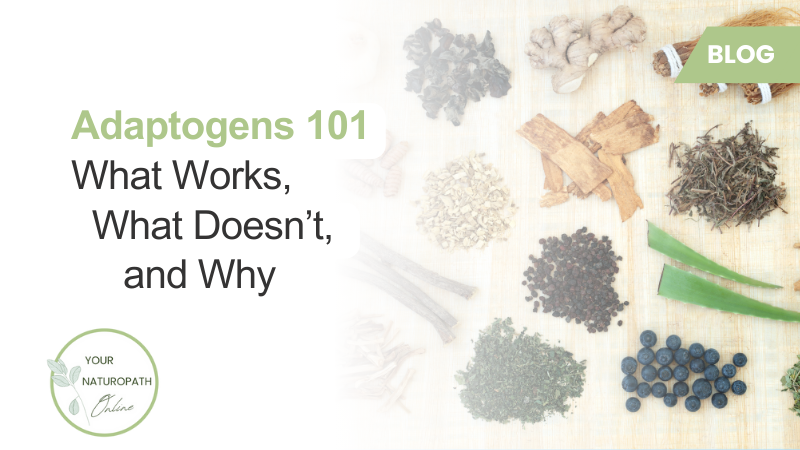This Craving Is Trying to Tell You Something
- Tanya Kurzbock

- May 3, 2025
- 3 min read

Decode the whispers of your body – and respond with power, not punishment.
Cravings often feel like a lack of willpower — but they’re far more biochemical than behavioural. Shifting hormones, rising cortisol, and changes in leptin signalling all influence our hunger, emotional state, and metabolism.
Here’s something I want you to really hear:
Your cravings are not the problem. They’re messages. Signals from your body asking for support, nourishment, or nervous system safety.
And when you learn how to decode them – through the right nutrition, emotional tools, and hormonal balance – you step into real empowerment.
The science behind the cravings:
Cortisol, your main stress hormone, rises during hormonal changes such as the luteal phase, and perimenopause. Poor sleep, high stress, blood sugar instability, or mental load all fuel the problem — and is known to increase appetite, especially for quick-energy foods like sugar and starches.¹
Leptin, your “I’m full” hormone, often becomes resistant due to inflammation or weight gain, leading to mis-signals — you may eat but still feel unsatisfied.²
And then there’s low-grade inflammation which disrupts insulin signalling and dopamine — increasing both cravings and mood dips.³
Your craving could be a clue:
Sugar cravings at 3 pm? Could be cortisol dysregulation or skipped protein earlier in the day.
Evening carb-loading? Your serotonin might be depleted — or you’re coping with fatigue.
Constant hunger despite eating? Leptin resistance and insulin may be at play.
🍫 Craving Chocolate?
You may be low in magnesium, overstimulated, or needing a dopamine boost. Try dark cacao, deep breathing, or magnesium-rich foods like leafy greens and tahini.
🍞 Craving Carbs or Bread?
Your body may be calling out for serotonin, energy, or emotional safety. Swap in roasted root veg, wild rice, or a calming routine that truly nourishes.
🧂 Craving Crunch & Salt?
This can be linked to adrenal fatigue or anxiety. Support your stress response with mineral-rich snacks (like seaweed or nuts), hydration, and boundaries.
🍷 Craving Wine at Night?
This often signals a need to downshift. Your nervous system might be seeking GABA – a calming neurotransmitter. Herbal teas, magnesium drinks, and sensory rituals help recreate that release… without the next-day slump.
Let's be honest - cravings and unhealthy eating patterns are often complex, and there is more to it than a simple nutrient deficiency. We cover all bases in our Leaner Me program.
The Leaner Me Philosophy: Your Body Is Wise
Inside the Leaner Me program, we don’t ignore cravings – we get curious about them. We use food, mindset tools, and functional insights to unpack the pattern, calm the chemistry, and meet the true need underneath.
If you’ve been stuck in the cycle of willpower, restriction, or emotional eating — it’s time to step into a new model of weight loss and wellness:
✅ Real nourishment✅ Nervous system repair✅ Mindset shifts and inner reprogramming✅ Targeted hormonal and gut support
🔄 Ready to Reset or Review?
If it’s been a while since your last review, or you’ve noticed cravings becoming louder, this is your sign.
A short check-in can help realign your plan, reassess your needs, and refresh your supplement or food strategy.
Let’s move away from food guilt and back into body wisdom.
Your cravings aren’t the enemy — they’re an invitation.
Warmly, Tanya – Your Naturopath & Mindset Coach

📚 References:
Vicennati V, Pasqui F, Cavazza C, et al. Cortisol levels and weight gain. J Clin Endocrinol Metab. 2009.
Myers MG Jr, Cowley MA, Münzberg H. Mechanisms of leptin action and leptin resistance. Annu Rev Physiol. 2008.
Vgontzas AN, Bixler EO, Chrousos GP. Inflammation, Metabolic Dysregulation, and Sleep Disturbance in Obesity and Aging. Obesity. 2005.










Comments